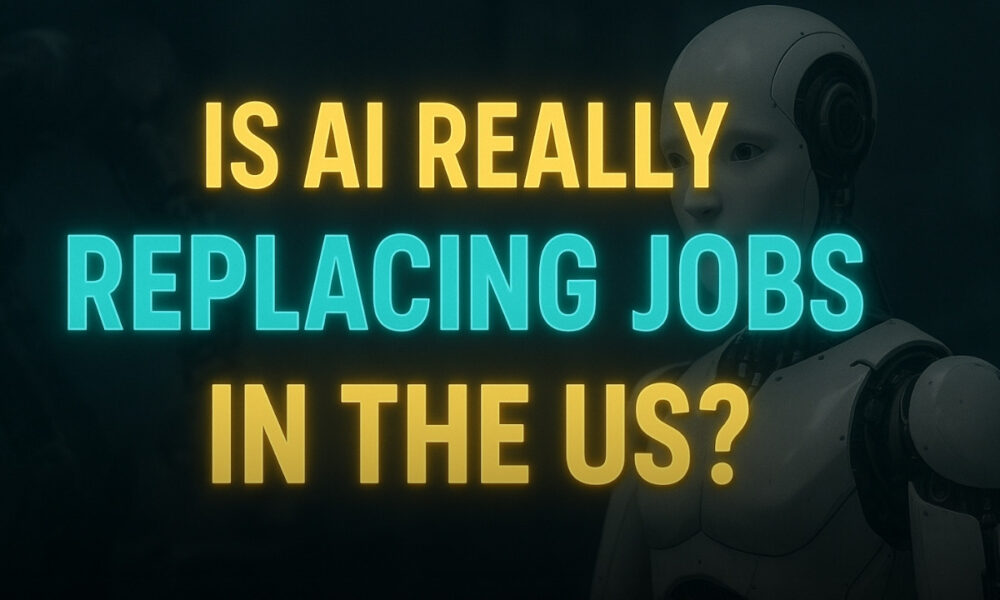Technology
Is AI Really Replacing Jobs in the US? The Truth You Need to Know!

The rise of Artificial Intelligence (AI) has sparked heated debates about its impact on employment in the United States. Many fear that AI is replacing human jobs at an alarming rate, while others argue that it is creating new industries and roles. The truth lies somewhere in between. This article takes a realistic look at how AI is changing the workforce, the sectors most affected, and the opportunities that may arise for those who adapt.
How AI Is Changing the Job Landscape
AI technologies such as machine learning, natural language processing, and robotics are automating repetitive tasks across various industries. This has led to job displacement in some areas but has also boosted productivity, efficiency, and innovation.
Key Trends:
- Automation of Repetitive Tasks: Roles in manufacturing, data entry, and basic customer service are increasingly being handled by AI systems.
- Creation of New Roles: AI has led to the rise of data science, AI ethics, and machine learning engineering jobs.
- Industry Transformation: Healthcare, finance, logistics, and creative sectors are evolving rapidly with AI integration.
Sectors Most Affected by AI
| Sector | Jobs at Risk | Jobs Created / Evolved | AI Impact Level |
|---|---|---|---|
| Manufacturing | Assembly line workers | Robotics maintenance engineers | High |
| Customer Service | Call center agents | AI chatbot trainers | Medium |
| Transportation | Truck and taxi drivers | Fleet automation managers | High |
| Healthcare | Administrative staff | AI-assisted diagnostic specialists | Medium |
| Finance | Data entry clerks | AI compliance analysts | Medium |
| Marketing | Manual ad managers | AI-driven campaign strategists | Medium |
Myths vs. Reality
- Myth: AI will replace all jobs.
Reality: AI will replace some roles but also create new ones requiring human creativity, emotional intelligence, and critical thinking. - Myth: Only low-skill jobs are at risk.
Reality: Even highly skilled roles may be transformed, but humans remain essential in decision-making and innovation.
Preparing for the AI-Driven Future
To thrive in an AI-driven economy, American workers need to focus on skills that AI cannot easily replicate, such as creativity, problem-solving, and interpersonal communication. Upskilling through continuous learning, technical certifications, and adaptability will be crucial.
Conclusion
AI is not an unstoppable job-destroying force, but it is reshaping the US job market. While certain sectors face high automation risks, others are experiencing a boom in AI-related opportunities. The best approach for workers is to embrace lifelong learning, adapt to technological changes, and position themselves for the new wave of AI-powered careers.